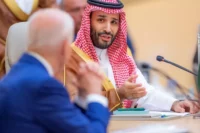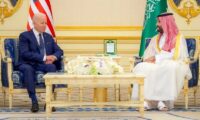
The Saudis Need a Reality Check
Last week, Saudi Arabia joined Russia and other petroleum-producing nations in the cartel known as OPEC+ in voting to slash oil production at a moment of historically high energy prices and rising inflation. The timing appears designed not only to fuel Russian President Vladimir Putin’s war machine but also to reverse the aggressive work that the U.S. Congress and the Biden administration have done to counter high inflation rates and bring down gas prices. But this hostile action by Washington’s putative friends in Riyadh did offer one silver lining: it showed that the United States has considerable leverage to correct what has become a fundamentally lopsided relationship.… Seguir leyendo »

















